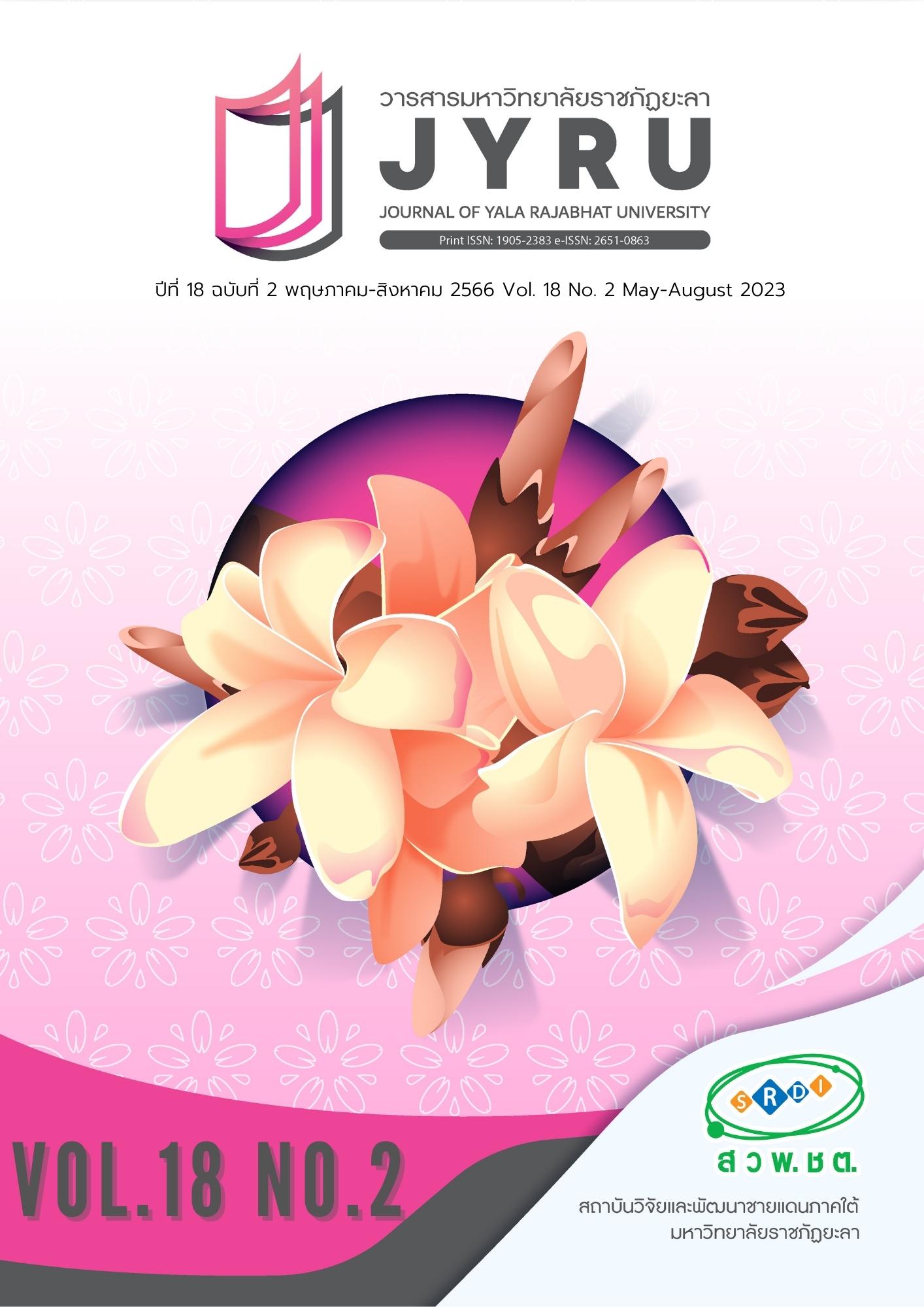พฤติกรรมการรับส่งข่าวสารที่เกี่ยวกับโรคติดเชื้อไวรัสโคโรนา (COVID-19) ของกลุ่มคนไทยที่ได้รับข่าวสารผ่านสื่อสังคมออนไลน์
Main Article Content
บทคัดย่อ
งานวิจัยนี้มีวัตถุประสงค์เพื่อศึกษาพฤติกรรมและปัจจัยที่มีผลต่อการรับส่งข่าวสารที่เกี่ยวข้องกับโรคติดเชื้อไวรัสโคโรน่า (COVID-19) กลุ่มตัวอย่างคือผู้ที่ได้รับข่าวสารเกี่ยวกับโรคติดเชื้อฯ ผ่านสื่อสังคมออนไลน์จำนวน 842 คน ใช้แบบสอบถามอิเล็กทรอนิกส์เป็นเครื่องมือในการรวบรวมข้อมูล วิเคราะห์ด้วยสถิติเชิงพรรณนาร่วมกับการใช้สถิติเชิงอนุมานผ่านแบบจำลองโลจิตพหุ (Multinomial logit model) เพื่อศึกษาปัจจัยที่ส่งผลต่อการรับส่งข่าวสาร ผลการศึกษาพบว่า ปัจจัยของประชาชนผู้ที่มีแนวโน้มที่จะอ่านข่าวมากได้แก่ กลุ่มผู้สูงอายุ (อายุตั้งแต่ 57 ปีขึ้นไป) ผู้ที่ไม่ได้รับการศึกษาจนถึงผู้ที่ศึกษาในระดับมัธยมศึกษาตอนต้น ผู้ประกอบอาชีพรับจ้างทั่วไป และค้าขายหรือประกอบธุรกิจส่วนตัว ผู้ปฏิบัติงานเกี่ยวกับสุขภาพ ปัจจัยของประชาชนผู้ที่มีแนวโน้มที่จะส่งต่อข้อมูลและข่าวสารมากกว่ากลุ่มอื่น ได้แก่ ผู้ที่ไม่ได้รับการศึกษาและศึกษาระดับประถม ผู้ที่ประกอบอาชีพค้าขาย รับจ้าง ผู้ที่ปฏิบัติงานเกี่ยวกับด้านสุขภาพ ผู้ที่มีรายได้ต่ำ ผู้ที่อยู่อาศัยในเขตชนบท ข้อเสนอแนะจากการศึกษา คือ ในการสร้างภูมิคุ้มกันในการรับรู้ข่าวสาร เกี่ยวกับโรคติดต่อหรือโรคสมัยใหม่ หน่วยงานหรือบุคคลที่เกี่ยวข้องควรมุ่งเน้นในกลุ่มผู้ที่มีแนวโน้มอ่านข่าวมากกว่ากลุ่มอื่น ๆ ดังกล่าว ให้ได้รับข้อมูลที่ถูกต้อง เพื่อประโยชน์ในการเฝ้าระวังและควบคุมการแพร่กระจายข่าวปลอม และควรมุ่งให้ข้อมูลที่ถูกต้อง และเฝ้าระวังการรับส่งข่าวสารที่เกี่ยวกับโรคติดเชื้อฯ หรือโรคสมัยใหม่ในประชาชนผู้ที่มีแนวโน้มที่จะส่งต่อข้อมูลและข่าวสารมากกว่ากลุ่มอื่น เพื่อป้องกันการแพร่กระจายของข่าวปลอมที่อาจก่อให้เกิดความเข้าใจผิดในวงกว้างได้
Article Details

อนุญาตภายใต้เงื่อนไข Creative Commons Attribution-NonCommercial-NoDerivatives 4.0 International License.
บทความ ข้อมูล เนื้อหา รูปภาพ ฯลฯ ที่ได้รับการเผยแพร่ในวารสารมหาวิทยาลัยราชภัฏยะลานี้ ถือเป็นลิขสิทธิ์ของวารสารมหาวิทยาลัยราชภัฏยะลา หากบุคคลหรือหน่วยงานใดต้องการนำทั้งหมดหรือส่วนหนึ่งส่วนใดไปเผยแพร่ต่อหรือกระทำการใดๆ จะต้องได้รับอนุญาตเป็นลายลักษณ์อักษรจากวารสารมหาวิทยาลัยราชภัฏยะลาก่อนเท่านั้น
เอกสารอ้างอิง
Cronbach, L. J. (1951). Coefficient alpha and the internal structure of tests. psychometrika, 16(3), 297-334.
Department of Children and Youth. (2021). Guidelines for preventing or avoiding computer-related offenses under the computer crime act, B.E. 2550. [Online]. Retrieved August 1, 2021, from : https://www.dcy.go.th/webnew/upload/information/information_th_20212708152830_1.pdf
Hemmin, A. & Vichitthamaros, P. (2014). Social media consumption behaviors and opinion towards results of experiencing social media in Bangkok metropolitan, Journal of Faculty of Liberal Arts Rangsit University, 9-10(16-17), 120-140. (in Thai)
Itthiyaporn, N. (2019). The impact of fake news, guidelines for consumers to deal with media. [Online]. Retrieved August 1, 2021, from https://www.isranews.org/isranews-article/78298-fake-78298.html (in Thai)
Kasornbua, T. (2021). The causal model of word of mouth and social media affecting decision to get to the nightlife entertainment in Taling Chan district. Journal of Yala Rajabhat University, 16(1), 79-88. (in Thai)
Lateh, A., Pasunon, P., Dolah, K., Kongjam, P., Chemae, S., Panomwan. P., et al. (2021). Analysis of Thai citizens clustering in COVID-19 outbreak preparedness at the three southernmost provinces. Journal of Yala Rajabhat University, 16(3), 318-326. (in Thai)
Saengtong, J. (2017). Aging society (complete aged): the elderly condition of good quality. Rusamilae Journal, (38),1, 6-28. (in Thai)
Senkaew, K. (2017). Social network usage behaviors of X generation in Bangkok. Master's Independent Study in M.B.A., Bangkok University. (in Thai)
Suksomsot, P. & Pumpruek, P. (2021). The impact of using social media to change the Thai values of teenages in Phranakhon Si Ayutthaya Province. Journal of Ayutthaya Studies, 13(1), 119-137. (in Thai)
Thairath. (2021). Deputy Jack warned about fake news handing out free masks then poisoned and robbed. [Online]. Retrieved August 1, 2021, from: https://www.isranews.org/isranews-article/78298-fake-78298.html. (in Thai)
The Media Insight Project. (2018). Appendix 1: respondents’ demographics and news behaviors. [Online]. Retrieved August 1, 2021, from: https://www.americanpressinstitute.org/publications/reports/
survey-research/subscribers-appendix-1/
Turner, R. C., & Carlson, L. (2003). Indexes of item-objective congruence for multidimensional items. International journal of testing, 3(2), 163-171.
Yamane, T. (1967). Statistics: An introductory analysis (2nd ed). New York: Harper and Row.
Yanchinda, J., Sangkakorn, K., Srichai, P & Khiewngamdee, C. (2021). Improving fake news classification ability for Thai people to cope with the spreading of news during the COVID-19 crisis (phase I). Bangkok: National Research Council of Thailand (NRCT).


